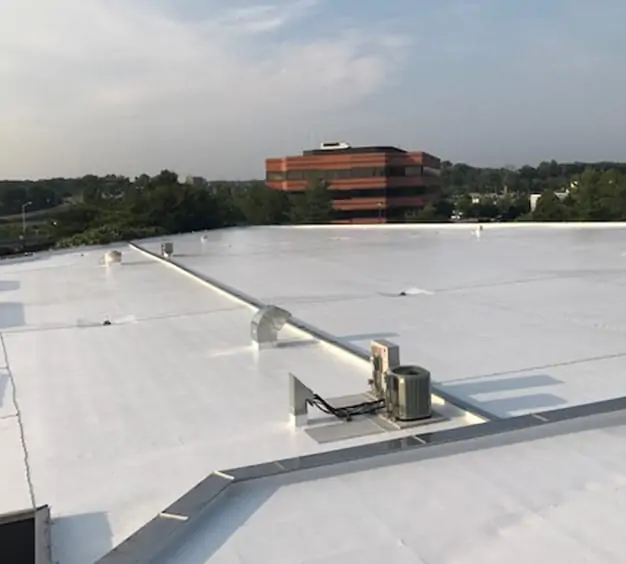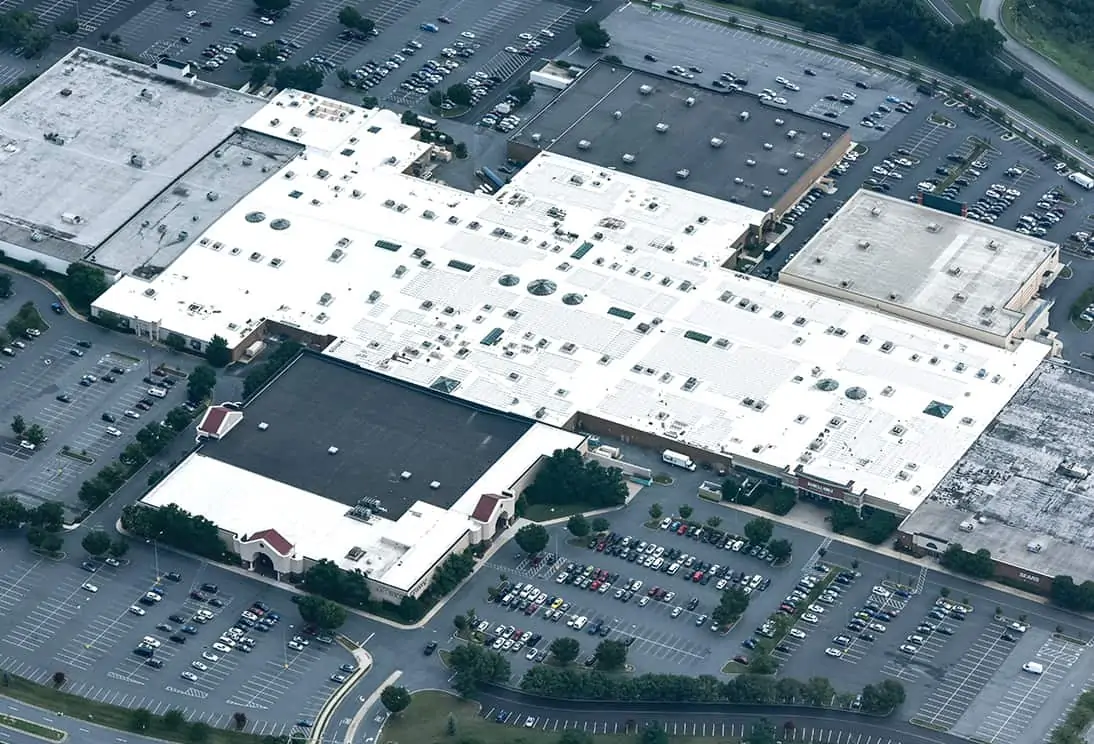Home » Roofing Systems »
- PVC (Polyvinyl Chloride) membranes are extremely versatile and chemical resistant.
- They come in a variety of colors, thicknesses, widths, and reinforcements, making them a good option for almost any commercial roofing project.
- Like TPO membranes they are installed with a heat-welded seam which makes them extremely waterproof with the added benefit of being able to withstand harsh chemicals.

features

Benefits
- Its durability makes PVC a solid option for restaurants, airports and commercial facilities that have grease, oil, and chemical concerns, or environments that experience dilute acidic effluents.
- The white reflective PVC roofing panels have a surface that provides a cooling effect which can help reduce cooling costs in warmer climates.
By Phone
Give us a call
678-718-4292
READY TO TAKE THE NEXT STEP?
SCHEDULE YOUR FREE 21 POINT COMMERCIAL ROOF INSPECTION
